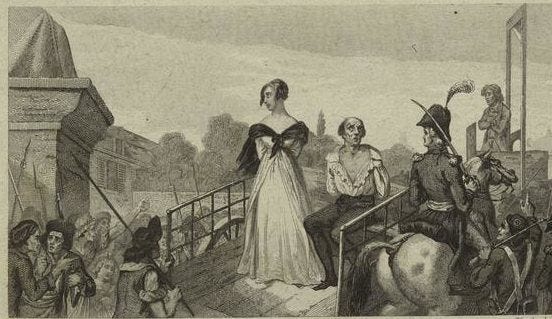Olympe de Gouges: The Feminist Icon of the French Revolution
Olympe de Gouges: The Feminist Icon of the French Revolution
Olympe de Gouges was a French writer and women’s rights activist who lived during the time of the French Revolution. She became known for her advocacy for women’s rights and her critical writings about the political leadership of her time.
Born as Marie Gouze in 1748, she grew up in a family of carpenters and married at the age of 18 to a man named Louis Aubry. She later moved to Paris and changed her name to Olympe de Gouges, adopting the pen name as a way to establish her independence as a writer.
Woman is born free and lives equal to man in her rights.” This quote is often cited as an early example of feminist philosophy, advocating for the equal rights and treatment of women.
De Gouges began her activism in the 1780s, when she began writing plays and pamphlets that advocated for the rights of women, slaves, and other marginalized groups.
Her most famous work was the “Declaration of the Rights of Woman and the Female Citizen,” which she wrote in response to the “Declaration of the Rights of Man and of the Citizen” that had been adopted during the French Revolution. De Gouges argued that women should have the same rights as men, including the right to vote and to hold public office.
De Gouges’ writings made her a target of the revolutionary government, which was dominated by men who were not receptive to her ideas. In 1793, she was arrested and accused of supporting the Girondists, a moderate political group that had been ousted from power. She was found guilty and executed by guillotine on November 3, 1793.

Despite her untimely death, de Gouges’ legacy lived on. Her writings were rediscovered in the 20th century and are now celebrated for their pioneering advocacy for women’s rights. Today, she is remembered as one of the most important figures in the history of feminism and a true champion of equality and justice for all.


Comments
Post a Comment